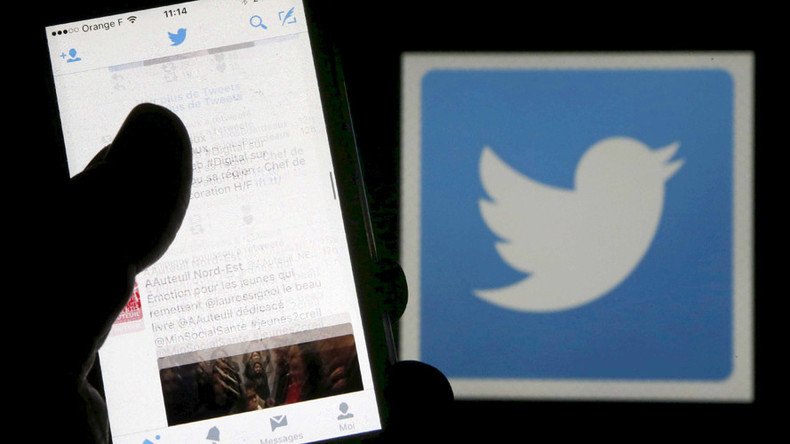Twitter ‘forgot’ to tell US Senate it pushed RT to spend big bucks on election ad campaign

Twitter never informed the US Senate Intelligence Committee that it had actually pitched a proposal for RT to spend big on advertising during the 2016 US presidential campaign, a lawmaker with the committee has stated.
Speaking to reporters on Thursday, a spokesperson for the committee, Democrat Mark Warner (Va.), said that the tech giant neither shared such information with authorities in a private briefing in September, nor on any other occasion, the Hill reports. The offer was not known to the public until RT Editor-in-Chief Margarita Simonyan exposed it in a tweet earlier that day. “Hope Jack Dorsey [Twitter CEO] won’t forget to tell Congress how Twitter pitched RT to spend big $$s on US election ad campaign,” she tweeted.
Hope @jack won’t forget to tell @congressdotgov how @Twitter pitched @RT_com to spend big $$s on US elex ad campaign. pic.twitter.com/7GqoEoSaY8
— Маргарита Симоньян (@M_Simonyan) 26 октября 2017 г.
RT, however, turned down the pitch. Instead of a potential investment of millions of dollars, the news channel spent only $274,100 on all US Twitter ads in 2016, and had further curtailed the ad budget on the platform this year. On Thursday, Twitter banned ads from RT and Sputnik over alleged meddling in the 2016 US election.
In a statement, the California-based company said that “early this year, the US intelligence community named RT and Sputnik as implementing state-sponsored Russian efforts to interfere with and disrupt the 2016 presidential election, which is not something we want on Twitter.” Twitter also pledged to give away money already earned from the two companies.
So irrational, cowardly & arbitrary. Are you keeping the millions in ads from the Saudi Government and other pro-US despots? https://t.co/L1emjXA6cg
— Glenn Greenwald (@ggreenwald) October 26, 2017
Experts have told RT that Twitter’s decision to ban RT’s advertising is based on a discredited intelligence report (the ODNI report) and comes at a time when the public is losing interest in “the evidence-free” Trump-Russia collusion case.
The report was compiled by the Office of the Director of National Intelligence (ODNI). An unclassified version of it was published in January and devoted seven pages to RT’s alleged influence on the election “by serving as a platform for Kremlin messaging to Russian and international audiences.” No solid facts to support the far-reaching allegations were provided to the public though.
READ MORE: Twitter ban on Russian media ads motivated by deep prejudice, sets precedent – Kremlin
“Twitter has decided to take action based on this old and discredited report just at the time that the so-called Steele dossier – the so-called Russia dossier – that people have been attempting to use to blacken the Trump administration... [it] turns out that the Steele dossier was paid for by Hillary Clinton,” former US diplomat Ted Seay told RT.
Next week, Twitter executives and other social media representatives are due to appear before Congress to testify about the alleged Russian interference in last year’s US election. Moscow has repeatedly denied that Russia had its fingers on the US presidential elections. Notably, at one point, President Vladimir Putin said that the United States is “not a banana republic” for such methods to be used.












